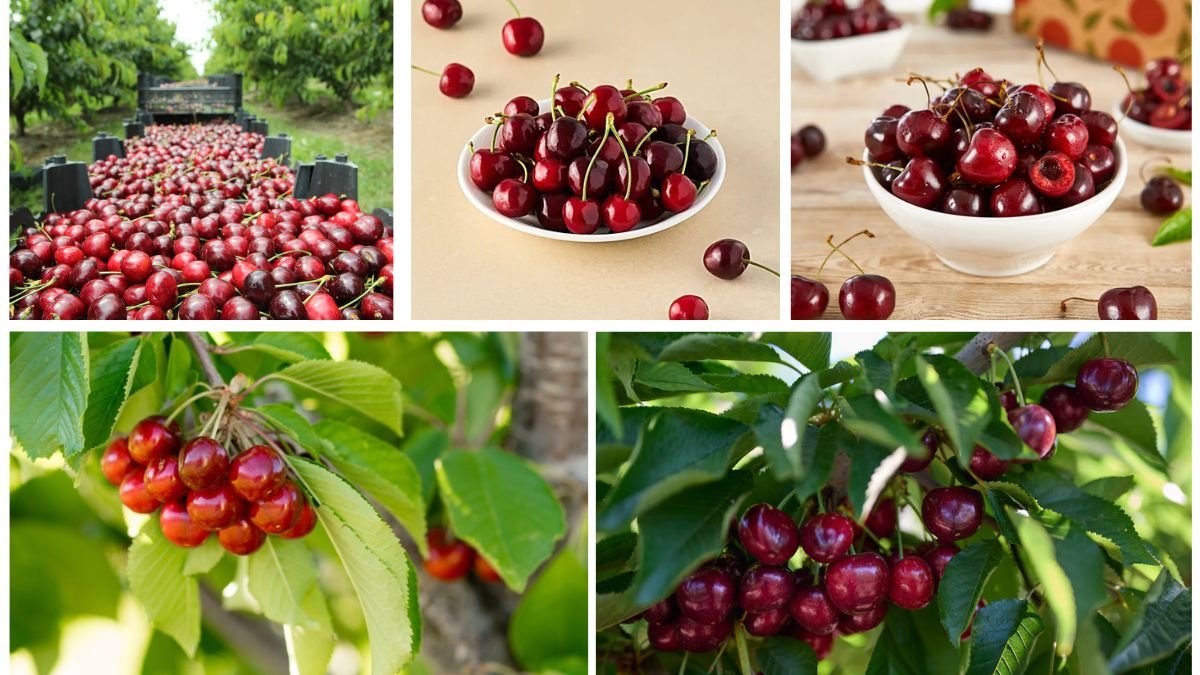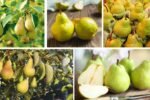Cherries are among the most celebrated stone fruits, known for their glossy skin, vibrant red to dark purple colors, and irresistible balance of sweetness and tartness. They are enjoyed fresh, dried, in desserts, beverages, jams, and even as garnishes for culinary creations. But beyond their flavor, cherries also have a long history, strong cultural symbolism, and a booming global market.
This raises a key question: which country leads in cherry production worldwide? The answer is Turkey, the global leader in cherry cultivation and production. With fertile soils, a favorable climate, and a centuries-old tradition of growing cherries, Turkey consistently tops the global charts, supplying millions of tons annually to domestic and international markets.
In this article, we’ll explore Turkey’s dominance in cherry production, the other top producers worldwide, the nutritional and cultural significance of cherries, and the challenges and opportunities shaping the industry.
Cherries: A Global Favorite
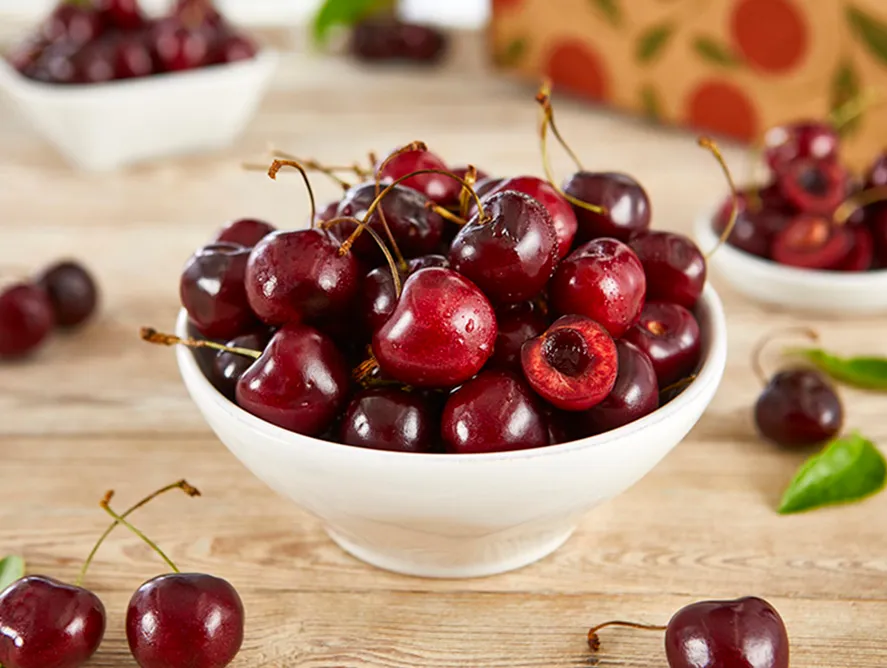
Before diving into production statistics, let’s understand what makes cherries so special:
- Types of Cherries:
- Sweet cherries (Prunus avium): Larger, sweet, and usually eaten fresh. Popular varieties include Bing, Rainier, and Stella.
- Sour cherries (Prunus cerasus): Smaller, tart, and mostly used in jams, sauces, pies, and juices. Varieties include Montmorency and Morello.
- Nutritional Profile:
Rich in vitamin C, potassium, fiber, and antioxidants like anthocyanins and polyphenols. - Health Benefits:
Improve heart health, reduce inflammation, support sleep (due to melatonin), and aid in post-exercise recovery.
Because of their short harvest season and delicate nature, cherries are considered premium fruits, making their production and trade highly valuable worldwide.
Turkey: The Global Leader in Cherry Production
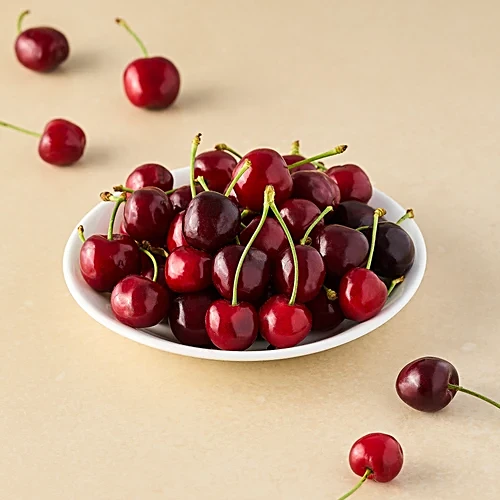
Annual Production
Turkey holds the crown as the world’s largest cherry producer, consistently accounting for around 20–25% of global cherry production. According to FAO (Food and Agriculture Organization) data, Turkey produces over 800,000 metric tons of cherries annually, sometimes exceeding 900,000 tons depending on the season.
Why Turkey Dominates
- Ideal Climate
Turkey’s temperate climate, with cold winters for dormancy and warm springs and summers for fruit ripening, makes it perfect for cherry trees. Regions like Afyonkarahisar, Konya, Manisa, and Isparta are leading hubs. - Diverse Varieties
Turkey grows a wide range of cherries, including both sweet and sour types. Its sweet cherries, like the “0900 Ziraat” variety, are particularly famous in export markets for their size, color, and firmness. - Centuries of Tradition
Cherries have been cultivated in Anatolia for thousands of years. Historical records show that cherries were spread to Europe from Turkey during Roman times, underscoring its cultural legacy. - Strong Export Market
Turkey is not only a top producer but also one of the leading exporters of fresh cherries. Key markets include Germany, Russia, and China, where Turkish cherries are prized for their taste and quality. - Government and Farmer Support
Turkish farmers benefit from agricultural extension services, subsidies, and investments in cold storage and logistics that enhance cherry quality and export competitiveness.
Other Major Cherry Producers Worldwide
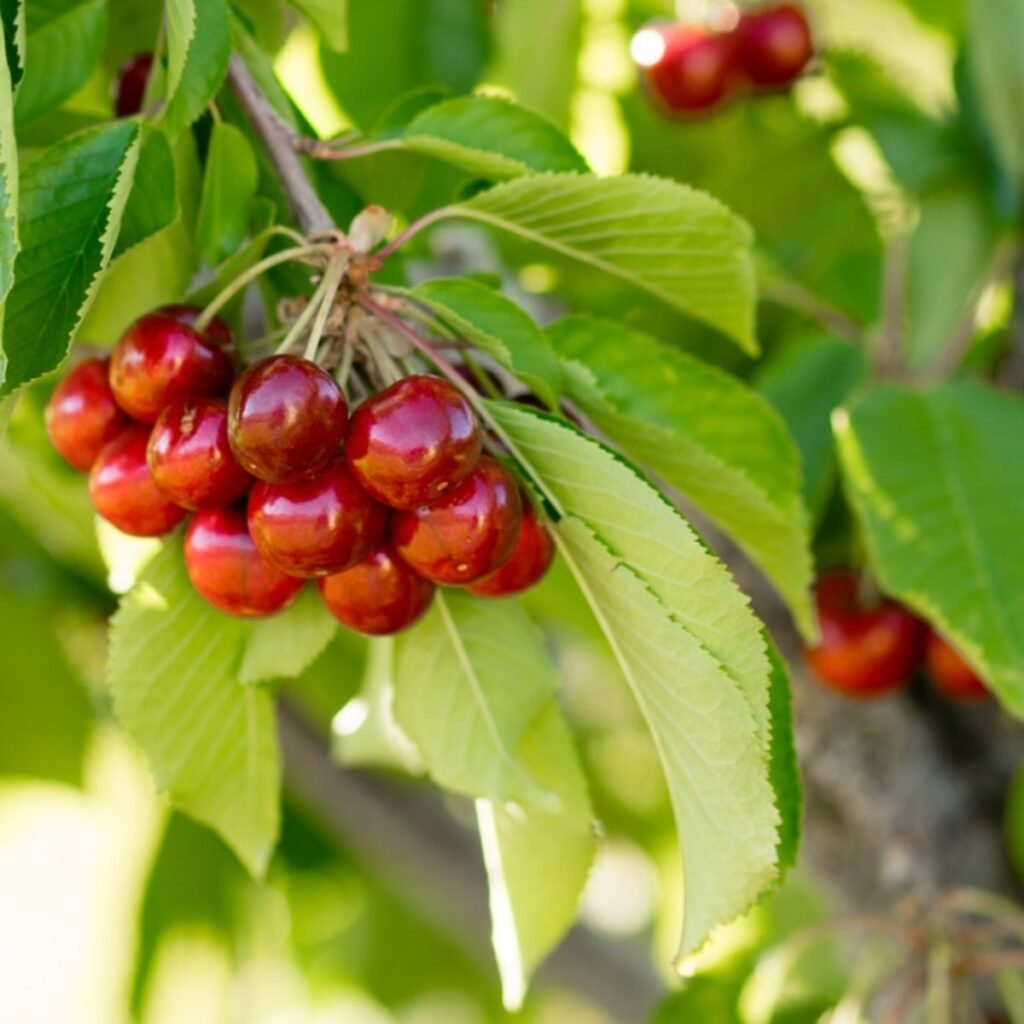
While Turkey is the leader, several other countries contribute significantly to global cherry production:
1. United States
- Annual Production: 400,000–500,000 metric tons.
- Highlights:
- The U.S. is famous for its Bing and Rainier sweet cherries, mostly grown in Washington, Oregon, California, and Michigan.
- Michigan also leads in sour cherry production, particularly the Montmorency variety, which is central to the U.S. cherry pie tradition.
- The U.S. exports cherries primarily to Canada and East Asia (China, South Korea, Japan).
2. Iran
- Annual Production: 350,000–400,000 metric tons.
- Highlights:
- Iran has favorable climates in provinces like Tehran, Alborz, and East Azerbaijan.
- Both sweet and sour cherries are cultivated, with a strong domestic consumption culture.
3. Uzbekistan
- Annual Production: 250,000–300,000 metric tons.
- Highlights:
- Emerging as a significant producer and exporter, especially to Russia and European markets.
- Known for sweet cherry varieties grown in fertile valleys.
4. Chile
- Annual Production: 200,000–250,000 metric tons.
- Highlights:
- Chile is the world’s largest exporter of cherries, despite lower production than Turkey.
- Its counter-seasonal harvest (December–January) allows it to dominate the Chinese New Year market, where cherries symbolize prosperity and good fortune.
5. China
- Annual Production: 150,000–200,000 metric tons.
- Highlights:
- Growing rapidly in provinces like Shandong and Liaoning.
- Domestic demand is extremely high, making China a net importer of cherries.
Other notable producers include Italy, Spain, Russia, and Poland, each with specialized cherry varieties and regional importance.
Global Cherry Market and Trade
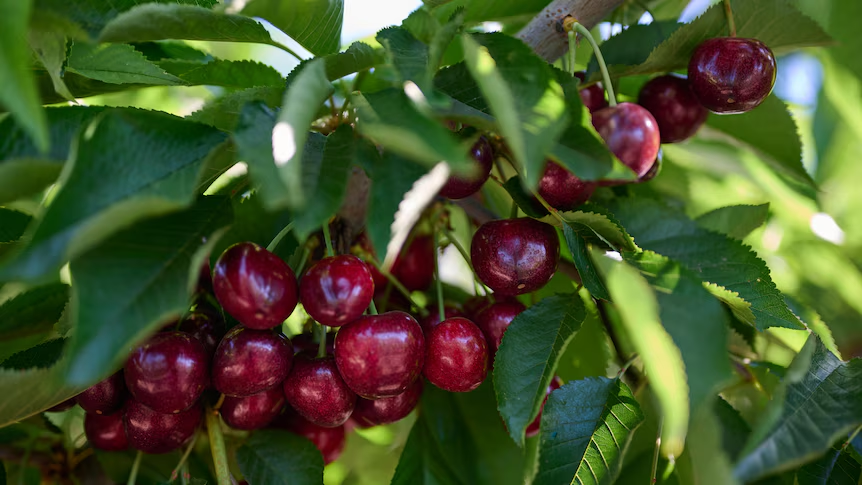
- Turkey: Tops in production and one of the leading exporters, particularly to Europe and Asia.
- Chile: Export powerhouse, especially to China.
- USA: Key player in both production and export, supplying Canada and Asian markets.
- Iran and Uzbekistan: Focus on regional exports.
- China: Largest importer, with cherries seen as luxury gifts during festive seasons.
The cherry trade benefits from improved logistics like refrigerated containers and air freight, which allow delicate cherries to reach distant markets fresh and intact.
Nutritional and Health Significance of Cherries
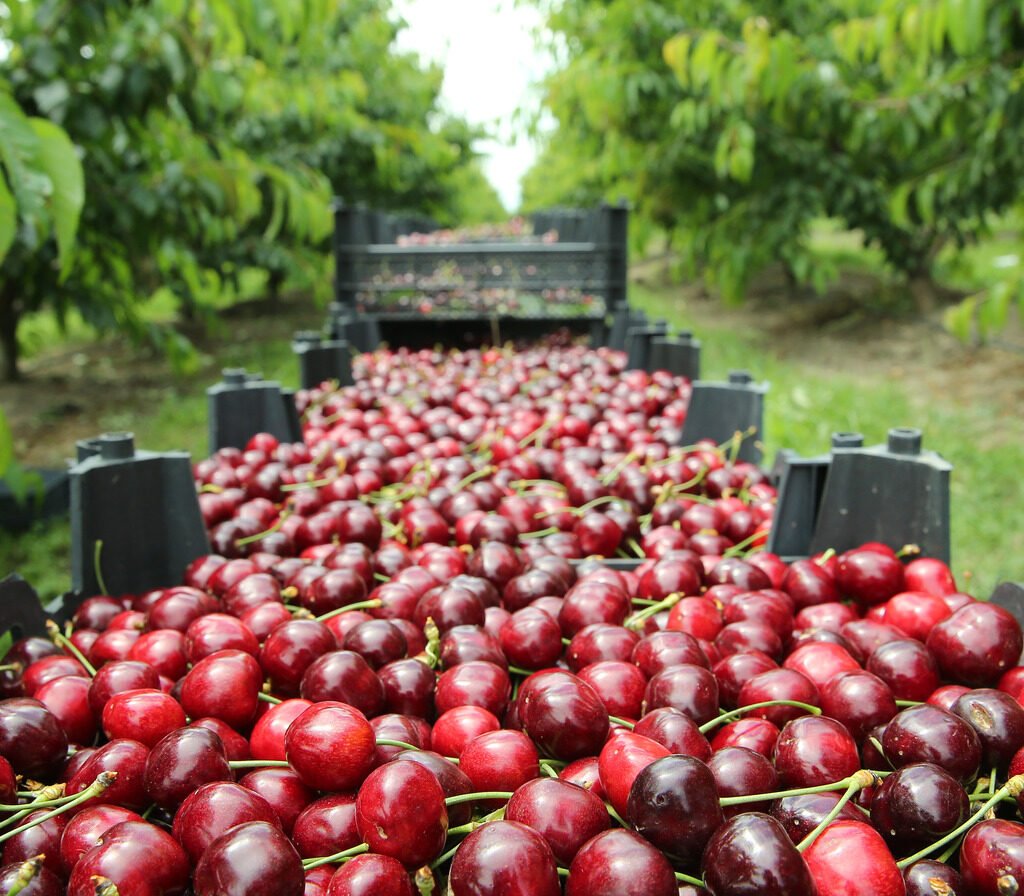
Cherries are more than just delicious—they are nutrition-packed superfruits:
- Rich in Antioxidants
Anthocyanins and polyphenols reduce oxidative stress and inflammation. - Supports Heart Health
Potassium regulates blood pressure, while antioxidants improve cardiovascular function. - Improves Sleep Quality
Cherries contain natural melatonin, promoting better sleep cycles. - Post-Exercise Recovery
Sour cherry juice is widely studied for reducing muscle soreness and improving athletic recovery. - Weight and Blood Sugar Control
Low in calories and glycemic index, making them a healthy snack option.
Cultural Importance of Cherries
- Turkey: Cherries are deeply rooted in the country’s agricultural identity, with festivals like the Kiraz Festival celebrating the harvest.
- United States: Cherry pies are an iconic American dessert; Washington State is synonymous with premium cherries.
- Japan: While not a major producer, cherries are highly symbolic, often linked with cherry blossoms (sakura) and seasonal festivals.
- Chile: Cherries are tied to New Year traditions, where they symbolize wealth and happiness.
Challenges in Cherry Production
- Short Harvest Season
Cherries ripen quickly and must be harvested within a narrow time window. - Perishability
Highly delicate fruits prone to damage during harvesting, packaging, and transportation. - Climate Vulnerability
Late frosts, hailstorms, and droughts can devastate crops. - High Labor Costs
Harvesting is labor-intensive, requiring careful hand-picking. - Market Volatility
Prices fluctuate depending on weather, export regulations, and demand surges.
The Future of Global Cherry Production
- Technological Innovations: Drones, precision irrigation, and cold chain systems will enhance yield and quality.
- New Varieties: Breeding for larger, firmer, and disease-resistant cherries is gaining momentum.
- Organic and Sustainable Farming: Rising demand for eco-friendly cherries will shape production practices.
- Expanding Markets: Asia, particularly China and India, will drive future cherry consumption.
Final Thoughts
So, which country leads in cherry production worldwide? The answer is Turkey, with its vast orchards, ideal climate, rich tradition, and strong export infrastructure. Producing over 800,000 metric tons annually, Turkey is the world’s undisputed leader in cherry cultivation.
Other nations like the United States, Iran, Uzbekistan, and Chile also play critical roles in global supply and trade, with Chile standing out as the largest exporter due to its counter-seasonal advantage.
With their irresistible flavor, nutritional richness, and cultural symbolism, cherries will continue to captivate taste buds and economies worldwide. Turkey’s leadership ensures that this fruit, once considered a luxury, remains a global staple of summer harvests and international trade.
